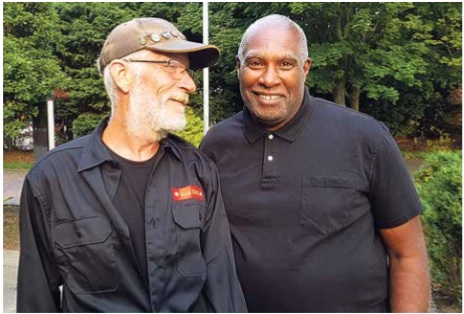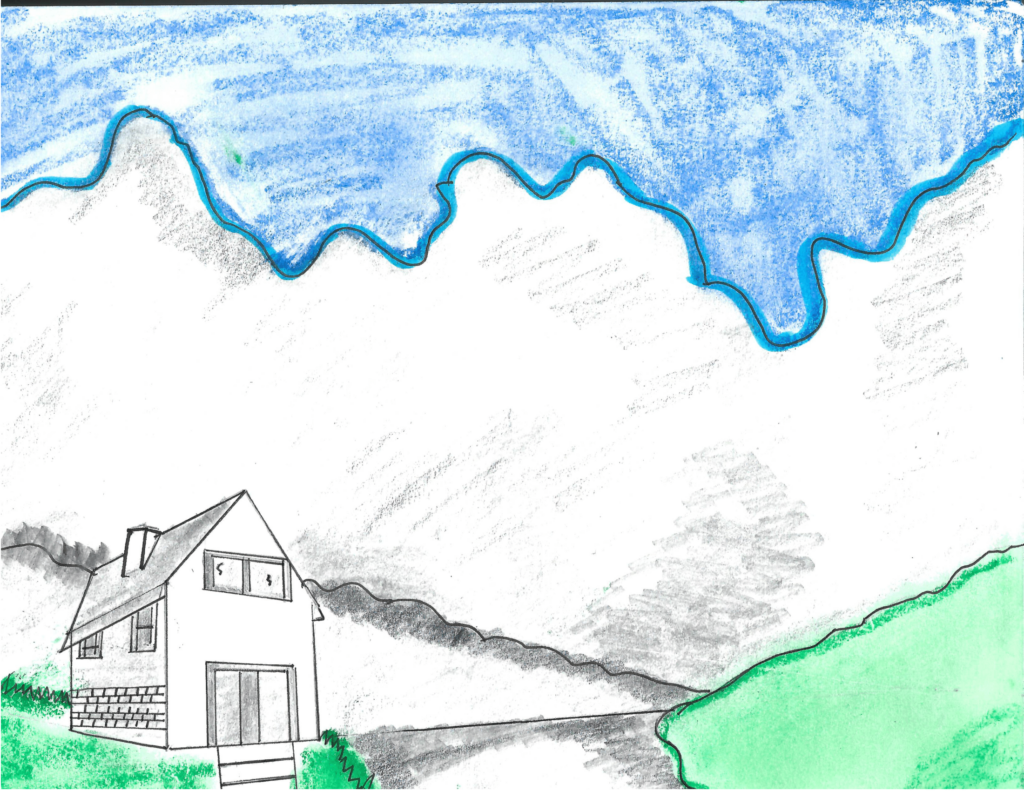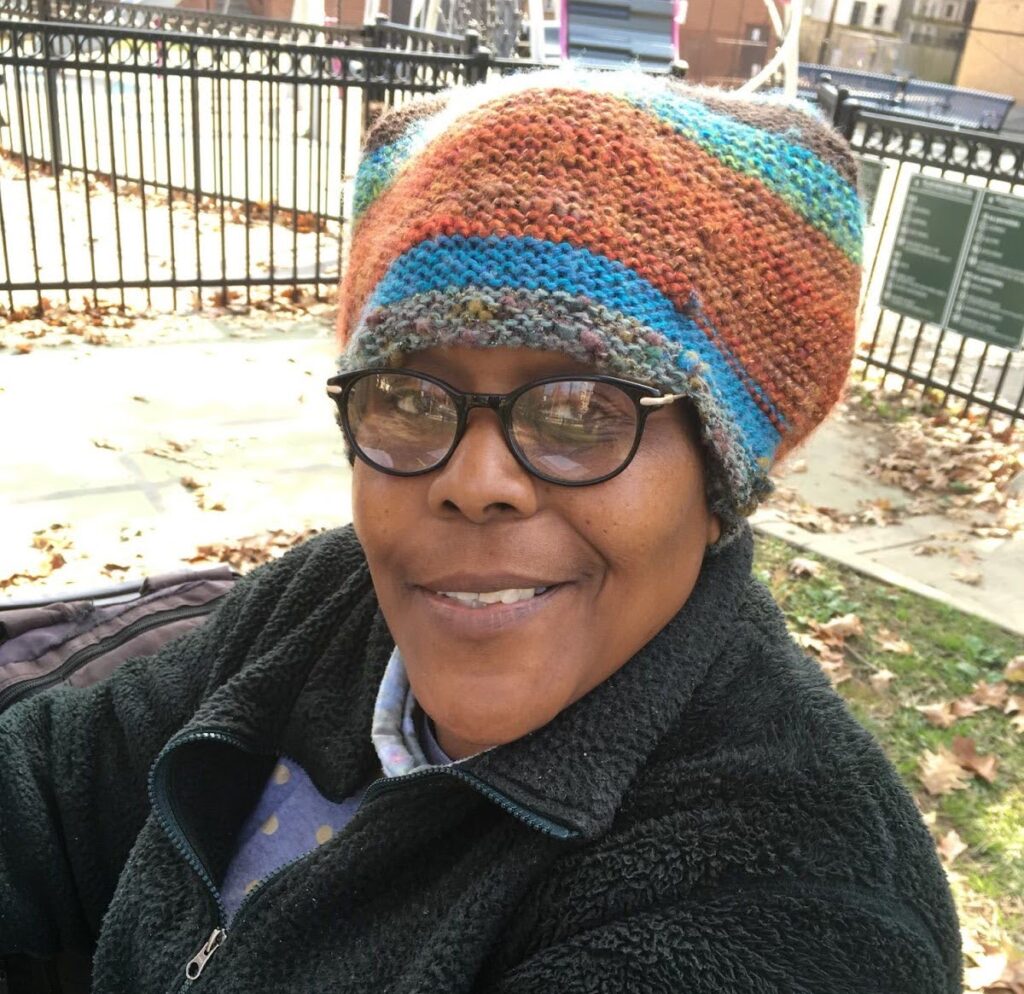Editor’s Note: This interview was first published in the Denmark street paper Hus Forbi in July 2019. Street Sense Media Vendor Wendell Williams met Hus Forbi Vendor Allan Anderson in Glasgow, Scotland, at the 2018 Global Street Paper Summit. Williams was a finalist in the International Network of Street Papers competition for “Best Vendor Contribution” and his customers supported his fundraising effort to purchase a plane ticket and attend the conference and awards ceremony.
Wendell is a vendor for Street Sense in Washington, D.C. Allan is a Hus Forbi vendor in Copenhagen, Denmark. Wendell got an apartment after reaching out for help. Allan has been homeless for eight years and he lives in the streets.
The rents in the states are through the roof, especially in the Washington D.C. area. In America, it depends on the zip code. The American dream used to be: Grow up, get a job, buy a house in the same neighborhood. That dream doesn’t exist today. I could not afford to buy a house in the same neighborhood that I grew up in and herein lies the problem for people in America, especially in urban centers. This is why homelessness and poverty is on the rise, Wendell says.
Allan: How is it that in the States, people are homeless and they live in a car and drive around to sleep in the streets?
Wendell: I have done that on several occasions. I lived and worked in my car. See, I was an Uber driver before there were Ubers.
A pirate taxi?
That’s how I made ends meet for a long time. I would literally hang out at the bus stations, at Greyhound bus stations, picking up passengers who were just coming into Washington and who would need transportation, especially to outlying areas around Washington.
Ups and downs
How long have you been homeless?
I am not currently homeless. I have been housed now for over a decade. Well over a decade. But I was homeless on and off for over 20 years. I would – just like a lot of homeless people, I was trying to figure it out – and I experienced moments of being housed and returned to homelessness. I would experience moments of employment and financial gain only to return to homelessness.
I have a theory that you cannot stop homelessness by giving people a home. You have to back up and examine why they are homeless and deal with those issues before you give them a home. The damage that needs to be repaired can´t be repaired by a quick fix. If you give a person a home after they have been chronically homeless, it’s like putting a Band-Aid on a bullet wound.
Yes, without doing anything else.
If you have been shot you can put some bandage on it or wrap some gauze around it. OK. That’s what we do when we give a person a home. You don’t address the other issues. And what are you gonna find? It’s gonna be just like me. It will be back and forth. Homelessness back and forth (says Wendell, who has on and off been a social worker, too.)
Not just a home
You have been working with the homeless for how many years?
I started working in the shelter systems in 1991. I worked for Catholic Charities, which is the largest provider of shelters inside of Washington D.C. And I worked for a specific shelter that is for men in recovery. Men who attempt to recover from alcohol and drugs. Most always they want to live on their own but what is difficult for them to realize is that they don’t possess the skills to live on their own.
They need help to get a home again?
I think case management is the key. Case management was a key for me. I started to work with some case managers as I started to crawl out of the abyss. I had some good case managers who held me accountable and who weren’t impressed with my charisma. “I know you’ve got a silver tongue and all that shit, but I am not paying attention to what you say; I am paying attention to what you do.” They said clearly: define smart goals. And smart goals mean sustainable, measurable, obtainable. Whatever.
Sometimes you have to do the same thing every day. You have to make money to get something to eat.
I understand that. It is a little simplistic. That kind of day keeps us trapped. You see, my job is to recover. That’s my job. And if I focus on that I will be fed. Where I am going with this is, and I don’t really want to talk about it, that we suffer from a spiritual disease. And you tell a homeless guy that. He really doesn’t want to hear it; he is not in touch with that. I did not say religious. I said spiritual. There is something going on that is spiritual and I find that when you get right with the spiritual dilemma on the inside of you, you lose fear and things start to happen.
For years I would not go and try to get an apartment as I feared nobody would give me one. And my sponsor in my 12-step program had to force me to go apply for an apartment. That’s how I got the apartment.

Does one size fit all?
A social worker or a caseworker, they can tell me exactly what I need to do to change my condition. But unfortunately, I think that I have got a better idea.
Don’t come and tell me how to do it?
Honestly, these professionals have seen hundreds of guys just like me in the same situation. But I want to say: I am unique!
You cannot put everybody into the same box. Everybody has different needs.
That’s the intellectual approach and I understand it. But the reality of the situation is: There is a one size fit all solutions. I don’t want to think so because it takes away my individualism. But there is some general stuff that everybody has to do with a slight twist for each individual. But it is basically the same thing everybody has to do.
One of the first things you have to do is to be honest with the person who is working with you. And that is hard to do because as a man, my ego is involved. Especially if my case manager is a woman. I have to get my ego out of the way and if she is an attractive woman it is going to be really hard for her to talk about my shortcomings. Well for sure, I am worried about judgment. You can’t save your a** and your pride at the same time.
The moment of clarity I have, the sobering moment, was that I accepted and realized: I can’t get out of this myself. That was the aha moment. At that point, as a man, I started to reach out for more support, except that it would be easier for me to help you than to ask you for help.
I have the same problem. I am good at helping others but not myself.
Yes, because that serves my ego, helping somebody else.
Becoming homeless
So, it has been eight years since you have been properly housed?
Yes
What happened when you lost your house?
I was divorced, and then I lost my home.
Were there any other underlying factors to your divorce or to you losing your house?
We were growing apart. I was working in construction at that time and the company I worked for closed. I lost my job and could not pay the rent. So first I was divorced and three to four months later my house was gone. I have been in the street since.
Are there other issues that might complicate that? Maybe mental health issues? Drinking issues?
I have two-three beers a day. I think when I am out selling my paper; I give something away every time. Drinking a little loosens up and makes it easier to connect and talk to people.
Doesn’t drinking beer every day make you forget something?
Maybe. I may be good to go to the shrink. It’s like therapy.
Liquid therapy? You know, I used to have that same strategy. It’s perfectly normal that I need something from the outside to make me relax. And it’s OK. And I want to encourage you to explore some internal solutions to that.
Policing street people
In Denmark, we are not allowed to sleep in the city anymore. The police come after you. It is getting harder.
In D.C. they are even attacking people living in the highway exit.
I have a good place where a company allows me to stay in the parking lot.
I know the feeling.
The people are very nice. I always clean up. It’s near a place where I can have my morning coffee.
What about a shower?
I can always get that at Hus Forbi (the Danish street paper). I also have the opportunity to get a couch to sleep in a volunteer’s apartment when things really get tough.
Eight years? There must be an underlying factor.
The solution could be for a homeless person to get a good life. To live and not just survive every day. To not to use drugs, alcohol, prostitution and all the things you need to survive, but you have what you need. If you get help in the right way you can start to take some steps up the mountain?
Absolutely. It is a slow deliberate process. But here in this society we are expecting things to happen very quickly. It takes years for a person to get back on track and that was part of why I kept starting over again. It was not moving fast enough so I would try to take shortcuts or would miss a couple of steps because I was so in a hurry to get to my destination that I missed some important building blocks and therefore, my foundation wasn’t solid.
When I stayed in a friend’s place, I was given options. I had her daughter’s house while she was traveling. I stayed for six weeks.
Yes, and that is great temporarily. But It is not a bridge to a permanent solution.
Oh no! But it is comfortable because when you are in an apartment you don’t have to eat junk food. You can cook your own meals.
Guess what! I was so excited that what I did in my own place was to let the TV stay on. Because I had stayed in so many shelters and rehabs where they cut the TV off at nine o’clock. I could see a good TV program and then suddenly the staff would come and say: “Light’s off!” When I first got my own place, I left the TV on every night even though I wasn’t watching it. And today – I never watch TV.
This interview has been edited and condensed.








